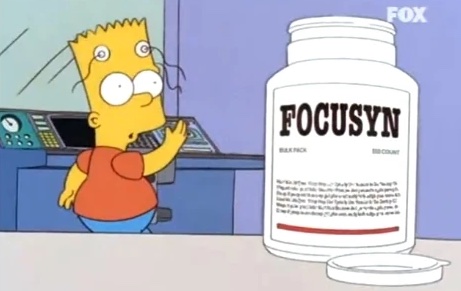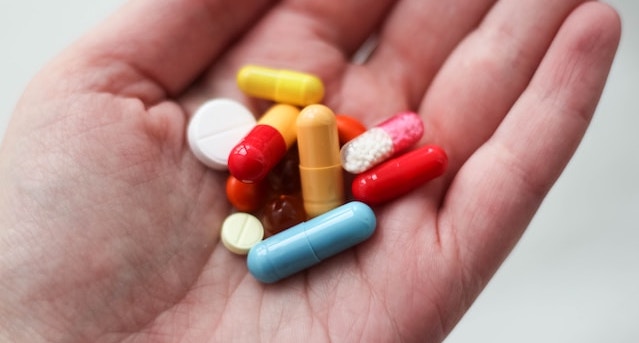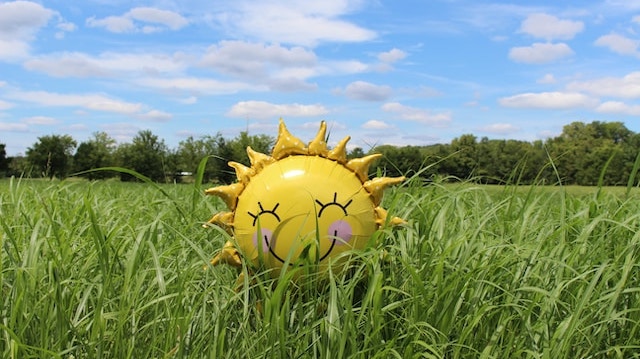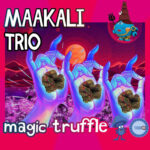Attention deficit hyperactivity disorder covers a range of neurological conditions that affect millions globally. Once overwhelmingly associated with ‘boisterous’ kids, it is becoming clear that it affects far more people than originally thought. This new understanding of the condition, as well as its growing rate of diagnosis in adults, has led to a new wave of interest in alternative treatments. There is also increased acknowledgement of the many postive aspects associated with ADHD — such as spontaneity, creativity, and the ability to hyper-focus. This has also driven that same desire for alternative treatments that manage rather than dull the symptoms and quirks of the condition.
Traditional ADHD Medications
There are several medications famous for their role as a treatment for ADHD. These include Adderall, Ritalin, Welbuitrin and Concerta, who entered the public imagination in the 90s when ADHD diagnoses had their first boom.

Adderall to Treat ADHD
Adderall is a central nervous system stimulant. It is most commonly used to manage ADHD. The way it works is by increasing dopamine and norepinephrine the brain’s two neurotransmitters. These are essential to regulate attention and focus, among other cognitive functions. These are often found to be depleted in people with ADHD.
One of the most significant benefits of Adderall is that it provides relief to symptoms very quickly. Those with ADHD who take Adderall report a noticeable improvement in their concentration and focus within an hour of taking it. This rapidity is particularly useful for those who need to manage their symptoms daily to perform specifically for work or school.
However, Adderall is not without its drawbacks. A primary concern is the risk of addiction or dependence. It can be habit-forming and has high potential for abuse — leading to its categorization as a Schedule II controlled substance. Additionally, those who use it for prolonged periods may develop a tolerance. Thus, they need a higher dose to achieve the same symptom relief.

The Research and the Risks: Adderall
When a meta-analysis of 20 studies from the American Academy of Child and Adolescent Psychiatry’s Journal was performed it was found that stimulant medications, such as Adderall, were effective in improving attention and working memory in children with ADHD. However, the risks that we outlined above were also acknowledged. This means that healthcare professionals must evaluate the risks and benefits of Adderall very carefully before prescription, and afterwards monitor the individual closely.
Other Traditional ADHD Medications
Other traditional ADHD medications such as Ritalin and Concerta work similarly to Adderall, also increasing the levels of norepinephrine and dopamine in the brain. However, their impact can vary based on how they are formulated and delivered to the body. This changes their effectiveness, side-effects and safety as a whole.
In terms of efficacy at treating ADHD, Ritalin and Concerta have been found to be on par with Adderall based on various meta-analyses of studies. However like Adderall they can cause side-effects such as irritability, insomnia and loss of appetite. It is key to note that the severity of these side-effects vary based on the individual, dosage and formulation of the drug.
The Long Term Effects of Traditional Medications
Traditional ADHD medications are stimulants. This means that if you decide to stop, or ‘withdraw’ from these medications you may experience unpleasant side-effects. When withdrawing from a drug such as Ritalin psychological symptoms can rear their head. These include depression, anxiety, apathy, irritability and fatigue. You may also feel the symptoms of ADHD such as difficulty focussing and insomnia returning.
Microdosing as an Alternative Treatment for ADHD
As you can imagine, although the traditional medications are a vital part of those with ADHDs’ lives, the potential for negative side-effects and dependance has caused many to yearn for another, natural, option. This is where psychedelics come in. There is growing evidence that the practice of psychedelic microdosing could offer a real alternative that could revolutionize ADHD treatment.

What is Microdosing?
Microdosing is the method of taking a very small dosage of a substance, typically a psychedelic, to gain therapeutic benefits without the hallucinogenic effects associated with larger doses. Microdosing psychedelics (such as psilocybin, from magic mushrooms or truffles, or LSD) has come to be associated with everything from treating depression, anxiety, and OCD to improving general creativity, focus, and mood.
When compared to taking a full dose of Adderall, Ritalin or another traditional ADHD medication, microdosing has been found to produce far fewer side effects and no risk of dependance. Additionally, psilocybin is a totally natural substance, unlike traditional pharmaceuticals. However, study into the topic, though promising, is still in its infancy.

The Research into Microdosing for ADHD
In 2020, a study from the Journal of Psychopharmacology found an association between microdosing with LSD and improved attention and cognitive flexibility in adults. Although this study did not specifically focus on adults with ADHD it implies that microdosing can benefit cognitive function.
In 2021, a study published in Scientific Reports, surveyed people who self-reported that they microdose to manage their ADHD. The results found that the majority of participants experienced an improvement in focus and attention. They also found a reduction in symptoms of depression and anxiety. However this study did not include a control group for comparison.
Then, in 2022, a groundbreaking study was published in Frontiers in Psychiatry by researchers from Maastricht University. They surveyed over 200 adult participants with ADHD, and found that microdosing significantly reduced their symptoms and increased overall feelings of well-being. This breakthrough finding legitimized the effectiveness of microdosing as an alternative to larger, tripping doses.
Finally, we are currently anticipating the results of a trial, announced by MindMed in December 2021. It will explore LSD microdosing as a treatment for adult ADHD. The trial will be a pioneer in this particular field. It will involve 52 adults with ADHD, who will be given 20 micrograms of LSD (or a placebo) twice weekly for 6 weeks. The researchers will then evaluate whether there is a difference between the symptoms of those who received the placebo, and those who received the LSD microdose. The results are expected later this year (2023).
Microdosing Psychedelics vs, Traditional Medications: Which is for You?
When making the choice between these options, there are various individual factors that should be addressed. These include age, lifestyle, medical history, and personal preference.
Age: Age is an important factor when choosing an ADHD medication. Microdosing psychedelics is only appropriate for adults, for example. Some traditional medications are formulated specifically for young adults and children, and are administered by parents, reducing the chances of abuse. Similarly older adults may have different needs too.
Medical History: Medical conditions such as heart disease or high blood pressure can make some medications riskier or less appropriate. If the patient is taking other medications these will also affect the choice of treatment.

Lifestyle: Many people plump for a specific medication because it fits in with their lifestyle and occupation.
A Bright Future for Microdosing
Feeling torn between microdosing or traditional ADHD medications? It is worth noting that the physiological effects associated with microdosing psychedelics are far less than with drugs such as Adderall and Ritalin. Additionally, the effects (or afterglow) of a microdose tend to continue into the following days, meaning a far more casual dosage regime. And, the recommended schedule (microdosing every other day/ every 3 days) prevents tolerance from building. Finally, microdosing actually boosts the mood and reduces stress levels. This makes it quite the opposite of traditional medications that can increase irritability and anxiety.
ADHD disorders are a vast and broad spectrum. It is important to discover what works for you individually, and helps you to be your best self. Happily, the research into microdosing for ADHD is highly promising, and there is sure to be a bright future ahead.


 Combo deals >
Combo deals >

 500 gr.
500 gr.  90/100
90/100 

 %
%

 Credit Card or other
Credit Card or other  payment options
payment options
 coupon 10% discount on MAGIC TRUFFLES
coupon 10% discount on MAGIC TRUFFLES